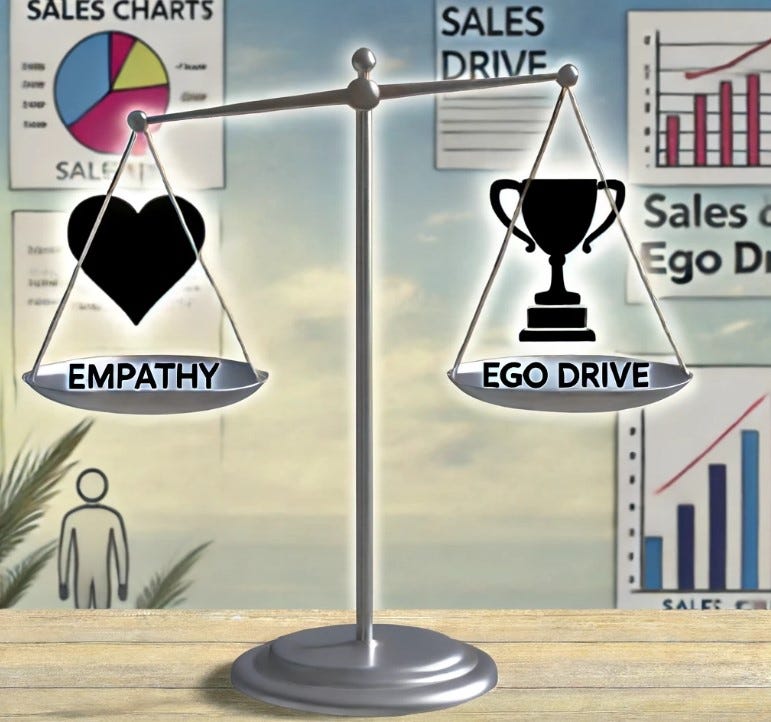The Timeless Traits of Top Salespeople
Why Empathy and Ego Drive Are Still Relevant
1964, not only did the Beatles tour the US for the first time and Cassius Clay changed his name to Muhammad Ali, but David Mayer and Herbert Green also published their inspirational paper, 'What Makes a Good Salesman.' Do you think their findings have stood the test of time? Let's see.
According to the authors, a good salesperson must possess at least two fundamental qualities: 'empathy' and 'ego drive.'
Empathy, the ability to understand and share the feelings of another, differs from sympathy. It allows a salesperson to gain valuable feedback from clients, creating rapport as defined by NLP.
On the other hand, ego drive means that sales are personal. For these individuals, signing a contract boosts their ego, while losing a deal diminishes it. Although monetary rewards are important, they come second to the personal satisfaction derived from closing a deal.
As always, everything is a question of balance. If you have high empathy but low ego drive, you might be pleasant to interact with but struggle to close deals. Conversely, if you have high ego drive but low empathy, you might close some deals but fewer than if you had balanced empathy.
“Don’t hire potatoes” Rory Sutherland (Alchemy)
This article also addresses the shortcomings in the hiring process for salespeople. You might think that in 60 years we have learned from our biases and made some changes. However, the fact that recent books such as 'First, Break All the Rules' by Gallup and 'Alchemy' by Rory Sutherland still mention these shortcomings suggests we still have room for improvement. Here are two key points:
'Hiring processes have been looking for interest, not ability.' Just because someone shows interest in selling does not mean they have the aptitude for it.
'They favor group conformity, not individual creativity.' Rory Sutherland advises against hiring 'potatoes.' When hiring, it’s common to do so one person at a time, rarely in bulk. As a result, there is a higher likelihood of selecting candidates who resemble the existing team in terms of education, experience, and other attributes. According to Sutherland, this approach may be driven more by a desire to mitigate risk and avoid criticism rather than by a genuine effort to enhance success. If the new hire fails to meet expectations, hiring someone similar to the current team can deflect blame, as it suggests that the decision was in line with established norms.
In conclusion, empathy and ego drive remain crucial qualities for successful salespeople, as evidenced by both historical and contemporary insights. As for the hiring process, we often prioritize interest over ability and conformity over creativity. To move forward, we must recognize and address these biases. Therefore, refining our approach to hiring and nurturing sales talent is essential. By focusing on both empathy and ego drive and embracing individual creativity, we can develop a more effective and dynamic salesforce. It’s not just about finding the right people but also about fostering an environment where they can thrive. As the sales landscape continues to evolve, so too must our strategies for identifying and cultivating top talent.

